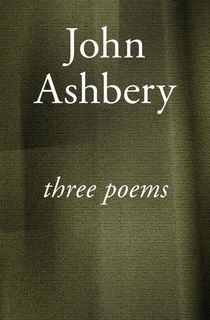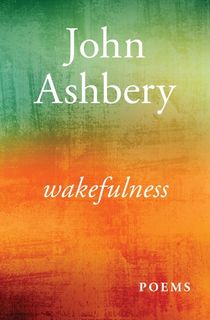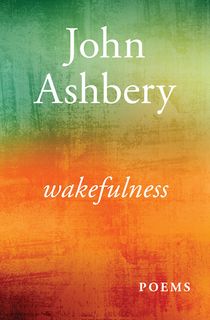Early Sunday morning, the great American poet, John Ashbery, passed away at the age of 90. Ashbery was a powerful—and famously obscure—voice in the literary world, and "changed the rules of American poetry." Among his 20 collections is the multi-award winning Self-Portrait in a Convex Mirror, which earned him a Pulitzer Prize, a National Book Award, and a National Book Critics Circle Award in 1976.
Like his poetry, Ashbery was brilliant and enigmatic—a man who cherished experiences and the magic of everyday moments rather than following convention.
Join us in celebrating his extraordinary life and inimitable style with the titular poem, "Wakefulness," below.
An immodest little white wine, some scattered seraphs,
recollections of the Fall—tell me,
has anyone made a spongier representation, chased
fewer demons out of the parking lot
where we all held hands?
Little by little the idea of the true way returned to me.
I was touched by your care,
reduced to fawning excuses.
Everything was spotless in the little house of our desire,
the clock ticked on and on, happy about
being apprenticed to eternity. A gavotte of dust-motes
came to replace my seeing. Everything was as though
it had happened long ago
in ancient peach-colored funny papers
wherein the law of true opposites was ordained
casually. Then the book opened by itself
and read to us: “You pack of liars,
of course tempted by the crossroads, but I like each
and every one of you with a peculiar sapphire intensity.
Look, here is where I failed at first.
The client leaves. History goes on and on,
rolling distractedly on these shores. Each day, dawn
condenses like a very large star, bakes no bread,
shoes the faithless. How convenient if it’s a dream.”
In the next sleeping car was madness.
An urgent languor installed itself
as far as the cabbage-hemmed horizons. And if I put a little
bit of myself in this time, stoppered the liquor that is our selves’
truant exchanges, brandished my intentions
for once? But only I get
something out of this memory.
A kindly gnome
of fear perched on my dashboard once, but we had all been instructed
to ignore the conditions of the chase. Here, it
seems to grow lighter with each passing century. No matter how you twist it,
life stays frozen in the headlights.
Funny, none of us heard the roar.
Read more of John Ashbery's famous works.

Hotel Lautréamont
“Ashbery’s phrases always feel newly minted; his poems emphasize verbal surprise and delight, not the ways that linguistic patterns restrict us. This sense of freedom is produced by Ashbery’s diction (no American poet has had a larger, more diverse vocabulary, not Whitman, not Pound) as well as his formal choices...Yet his work is permeated by a sense of urgency. He writes to outpace his last thought, refusing to rest in it, proceeding at a rate that is not hurried but dogged, in it for the long haul.” —Langdon Hammer, The New York Times Book Review

Three Poems
“Ashbery’s finely tuned style never lapses into the commonplace. Every poem creates a mood of density and discretion, which is almost magical. . . . The language is everywhere magnificent.” —Dennis Zweig, The New York Times Book Review
Want more poetry from literary legends like John Ashbery? Sign up for the Early Bird Books newsletter and get the best daily ebook deals delivered straight to your inbox.
Featured Photo of John Ashbery: Alchetron


